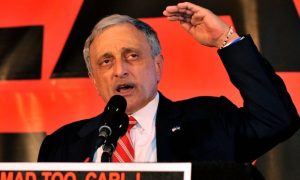What could we expect from Trump’s legacy?
External Relations 25 November 2016Today we face a different European Union. The EU has been recently hit by the euro crisis that brought together creditors against debtors and undermined the common sense of solidarity, while Brexit showed for the very first time that EU can sink faster than it can grow and bloom. This new European Union – more tired, but more mature as well – might need to keep on bracing itself, in the light of Trump’s US presidency.
Of course many European politicians have to deal with the risk of “parallel” for their own democracies. Many of them took steadily the chance to congratulate Mr. Trump in the hope of limiting the publicly-announced Trump’s intention of revising alliances and traditional commercial and diplomatic relations. Following immediately the Brexit vote, Mr. Trump’s election will definitely support populist everywhere in Europe (and throughout the world), selling the popular message that everyone, also from anti-establishment groups and parties can be elected. Italy, Austria, France and Netherlands, in this order, are obviously cold sweating. Euroscepticism might strengthen in those European countries, launching attacks against Eurocrats, notably the main scapegoats for the failings of European and national political and economic performance.
Even if those will be the most pragmatic effect US elections will exert on the European Union, anyway there are some others that we cannot overlook, in particular, because those mainly concern the EU external relations policy.
The election of a strong admirer of Vladimir Putin poses in facts urgent questions towards European security. A likely decline in US commitment to NATO could call into question one of the forces that historically led Europe on its integrating path. In particular, the most weak point for NATO will be the Baltic states: let us consider in facts that the provision of a strong defence for Latvia, Estonia and Lithuania has been one of the most tedious pains in the neck for NATO. Natural ability of NATO to deter Russia from enter these areas as it recently happened in Ukraine, depends on the “substance” of the US commitment within the alliance, or, from a different perspective, it depends on the Russian perception that America will or not intervene in the occasion of a crisis. Mr. Trump has frequently underlined that America will not keep on defending allies for free – a pretty justified complaint, if we take into account that the US spend on defence more than its Japanese and European allies put together.
To a greater extent EU-Russia relations might be impacted and altered. In particular, Mr. Putin would look at the decline of Western democracy’s appeal, hoping that this could curtail the risk of new “colour revolutions” or similar turmoils in the Russian (not so) hypothetical sphere of influence. The direct link between both Trump and Putin, may speak volumes about the new European policy towards sanctions against Russia. Trump’s idea of lifting Western sanctions, would in fact have two side-effects for the EU: on the one hand, the EU would finally show its authority weakness accepting without enthusiasm its subordinated international role as a second-stance-Superpower, while, on the other hand, it could be benefit those European Member States that used to share important trade-flows with Russia.

Gary Wiepert/Reuters
d out in a recent article, Germany now appears to be the true guardian of those considered original European values. The chancellor Angela Merkel is the only one holding the keys to resist the wave of anti-establishment nationalism, POLITICO said. If Mr. Trump’s success will trigger the spreading of populism elsewhere, the EU may find it hard to hold together.


